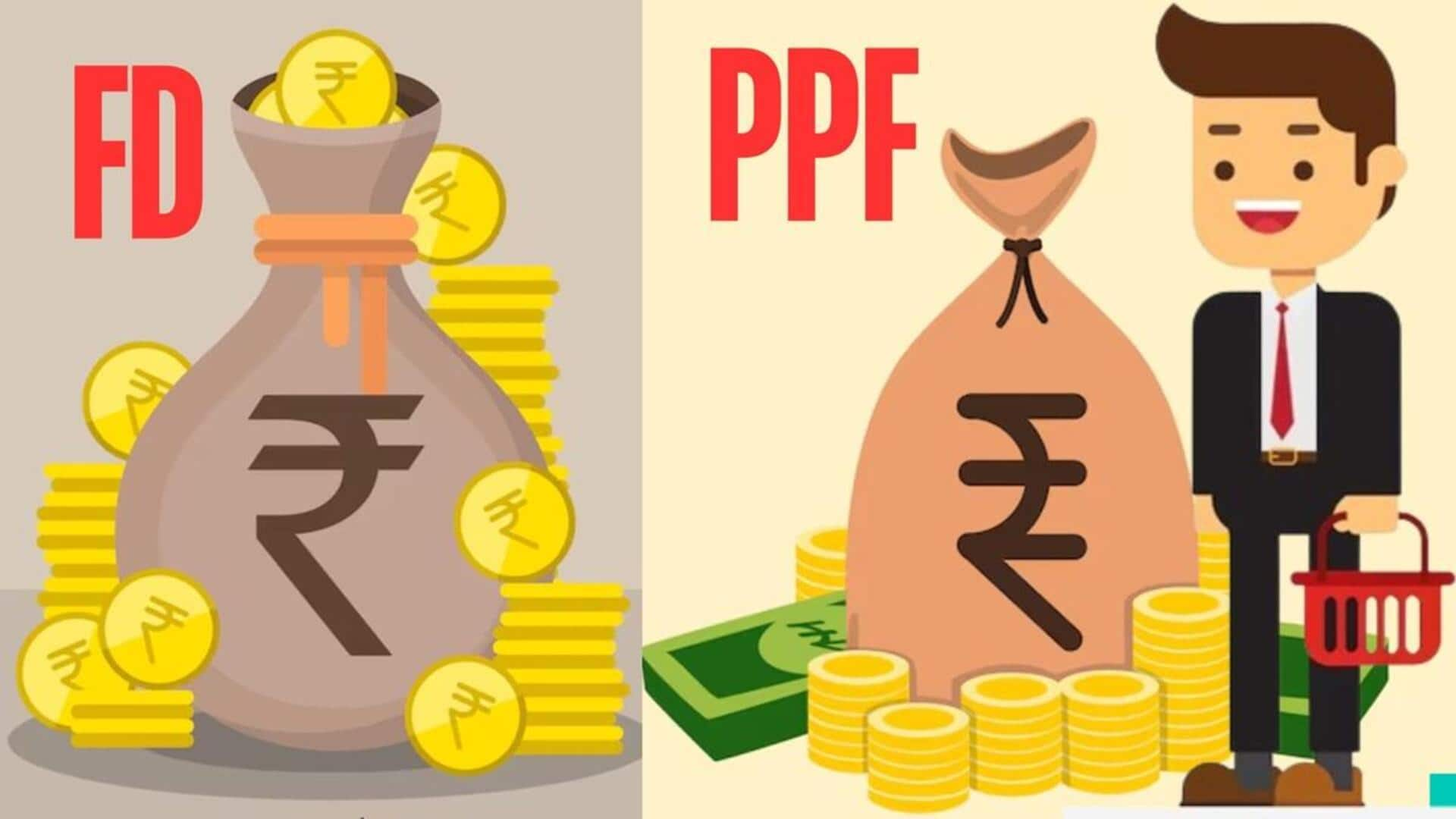
PPF or FD: Which is better for first-time home buyers?
What's the story
Public Provident Fund (PPF) and Fixed Deposits (FDs) are two of the most popular investment options for first-time home buyers in India. Both options come with their own set of benefits, making them attractive for those looking to save for a home. While PPF offers long-term savings with tax benefits, FDs provide short-term liquidity and guaranteed returns. Here's a look at the pros and cons of both.
#1
Understanding PPF benefits
PPF is a government-backed savings scheme with a lock-in period of 15 years. It offers attractive interest rates, usually higher than FDs. The contributions made toward PPF are eligible for tax deductions under Section 80C, making it an attractive option for tax-saving. However, the long lock-in period means you can't access your money easily until maturity, which may not suit those needing immediate funds.
#2
Exploring FD advantages
Fixed Deposits offer a more flexible option with shorter tenures ranging from seven days to 10 years. Banks usually provide higher interest rates on FDs than savings accounts but lower than PPFs over the long term. Unlike PPFs, FDs allow premature withdrawals (though with penalties), offering more liquidity if required. However, the interest earned on FDs is taxable as per the individual's income tax slab.
#3
Risk factors involved
Both PPF and FD are considered low-risk investments as they are backed by the government or banks. However, inflation can erode the real value of returns over time if not managed properly. While PPF guarantees returns based on market-linked rates set quarterly, FDs offer fixed returns but may not always beat inflation rates in the long run.
Tip 1
Choosing based on financial goals
When deciding between PPF and FD, consider your financial goals and timelines. If you're saving for a long-term goal like retirement or a future home purchase without immediate cash needs, PPF could be ideal due to its compounding benefits over time. On the other hand, if you're looking for short-term savings with flexibility in accessing funds when needed, then FDs might be more suitable given their shorter maturity periods.